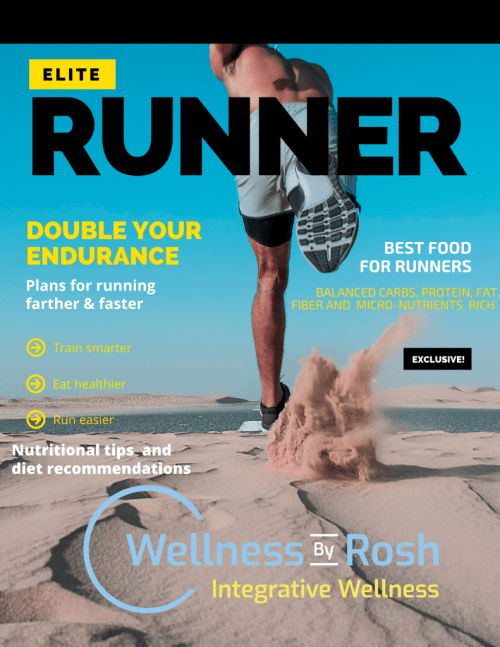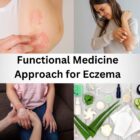Integrative Nutrition For Elite Athletes
Athletes and Nutritional Support.
For the optimal performance, nutrition plays a central role in adaptation, rehydration, refuelling and repair. Factors like weight, stress, GUT health, metabolic rate, hormonal balance, daily physical activity, disease states, gender, age etc are some of factors involved in deciding various essential nutrients.
What are the impacts or signs of a wrong diet when you are a sportsperson?
The value of food and nutrition is huge in any human body and eating disorders or deficiencies are very common in athletes reason being the high demand of a sport.
- Mineral like Iron, magnesium, calcium, magnesium, selenium, zinc deficiency
- Vitamin C, D, E, K, B9, B12, B6 deficiency
- Drowsiness
- Bulimia
- Orthorexia, the illusion of eating extremely clean
- Excessive exercise disorder
So, for a healthy lifestyle of an athlete, what would be the possible nutrition intake?
What is sports nutrition in general?
It is a well-designed diet plan which consists of natural nutrients, vitamins, proteins, carbohydrates, etc. to help the athletes perform at their best. It can vary depending upon the particular individual sport or activity plan.
What are the different types of added nutrients in a sports nutrition diet?
- Carbohydrates: Low-GI/complex carbohydrates meal before prolonged exercise affects positively metabolic responses in favor of exercise performance, optimizes glycogen stores and provides readily available energy. Recommended intake for athletes ranges from 3 to 10g/kg/day.
- Proteins: Dietary proteins and essential amino acids for muscle strength, muscle size, performance during resistance training, repair and preservation of muscles. Recommended daily protein intake is 1-1.5 g/Kg of body weight provided normal kidney function. Primary food sources are beans, pea, legumes, hemp seeds, pumpkin seeds, quinoa, amaranth grains/flour, roasted bengal gram flour (“sattu”), milk, eggs, meat, fish.
- Fats: This aids in absorption of fat-soluble vitamins like A, D, E, and K and for hormone production and maintenance of cell membranes. Good sources are olive oil, organic A2 ghee, walnuts, flaxseeds, avocado, pumpkin seeds, coconut.
- Hydration : Hydration with water containing multiple minerals, vitamins is superior to water alone or water plus sugar or salt. If an athlete fails to replace fluid and electrolytes then dehydration and electrolyte imbalance can lead to impaired thermoregulation decreases exercise performance.
Nutritional Supplementation:
- L-Arginine: increases hormone production, blood flow, muscle gain and reduces body fat, cell division, wound healing, synthesis of nitric acid, blood pressure regulations, mitochondrial respiration, support of immune system.
- Omega-3 (3000-3600 EPA+DHA) pure fish oil from reputed company per day as this reduces the inflammatory and immumodulatory effects of exercise, improving exercise performance, preventing sports-associated injuries, protective effects with muscles, joints, cardiovascular health, brain and nervous system, immune system and GUT health.
- ALA (Alpha Linolenic acid ) is derived from plants source like flaxseeds, nuts but conversion to EPA and DHA (active form) is very poor so for vegetarian, most recommended is algae based DHA.
- L-Glutamine : Helps in protein repair and synthesis, wound healing, GUT repair and barrier, acid-base balance, immune system support and energy source.
- Magnesium : Optimal level is necessary for 300 metabolic reactions, muscle functions, bone formation, nerve and muscle function, heart rhythm, immune system, calcium absorption and blood sugar regulation. Multi form like taurate, malate, citrate and bi-glycinate are crucial for optimal performance.
- Vitamin D3: For optimal health, blood levels of at least 70-90 ng/mL of active 25-OH D3 are recommended so adjust your daily dosage 3000 – 10000 IU of Vitamin D3 based on current blood reports.
- Vitamin K2 : Vitamin K2 as Menaquinone-7 (MK7, active form of K1) are important for bone and cardiovascular health.
- Vitamin B12: Low B12 can be associates with anemia, lack of endurance, weakness, decreased HDL, high homocysteine, platelets aggregation all can decrease athletic performance. Appropriate B12 supplementations (specially for vegetarians) along with B9 (methy active form) will be necessary if blood reports shows below 80th percentile of lab range.
- Zinc : It is essential for growth, building and repair of muscle tissue, immune status.
- Iodine : It is quite essential for thyroid and adrenal health.
- Green tea: it increases oxidation of fat both at rest or while exercising.
- Adaptogenic herbs like Ashwagandha: Increases the ability to adapt and recover.
- Whey protein: it is the best replacement for protein for an athlete, helps in growth and recovering. This is superior than casein and soy protein.
Saying “No” to the following food which are reducing your effective performances:
- Avoiding high sugar intake and unprocessed foods.
- Reducing the intake of refined grains, wheat, corn starch, GMO’s grains.
- Reducing artificial fats like deep-fried foods, margarin, cake, cookies, these products are tough to be handled by our bodies.
Immune functions
- Physiological and psychological stresses alters immune system
- Regular running/exercise can decrease levels of inflammatory cytokines as well as oxidative stress.
- Excessive running/exercise can induce hormonal imbalance, increases the inflammatory cytokines , which are cause of inflammations.
Resistance Training :
Voluntary activation of specific muscles, increase of muscular strength and endurance, improvements in cardiovascular health like hypertension, lipids, glucose management, visceral adiposity and weight management.
Motivation :
Motivation can be either physical or psychological oriented.
- Physical Motives : It can be being in better physical health, greater strength, endurance, healthy weight.
- Psychological Motives : Long term exercising at an optimal level can significantly contribute to positive psychological health.Here it has clear pattern and measurable volume in terms of frequency, duration and intensity. Excess exercise addiction can have associated harmful effects as they are motivated by negative enforcement (for eg to avoid gaining weight).
Bone Health/Bone Mineral Density :
As we age, it is important to screened as routine to check for bone disorders. Vitamin D3, selenium, Calcium (through diet), collagen from regular consumption of L. Reuteri probiotics, healthy fats, resistance training are crucial to reverse and avoid bone loss.
Probiotics :
- Multi-strain probiotics with strains belonging to Lactobacilli and Bifidobacteria can also reduces respiratory symptoms. Lactobacillus species like L. rhamnosus GG, L. acidophilus, L. casei, L. helveticus, L. fermentum, L. plantarum, and L. salivarius along with B. animalis subsp., B Lactis improved intestinal permeability in athletes.
- L. Reuteri to build muscle mass and for bone health.
- Natural fermented foods like yoghurt, kefir, sauerkraut, miso etc.
- Prebiotic fiber such as green banana, artichokes, garlics, onions, chicory, apple, green peas, inulin, FOS etc.
Kindly schedule a free consultation to tune integrative nutrition, specific to your sports for optimal performance.









